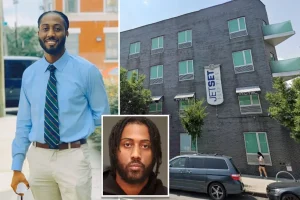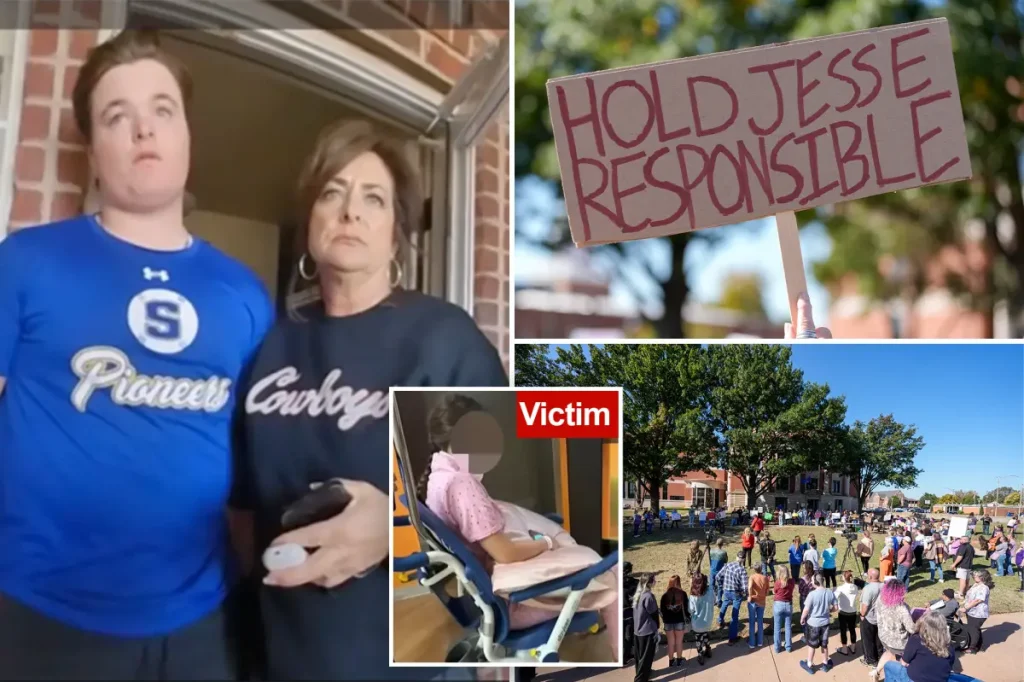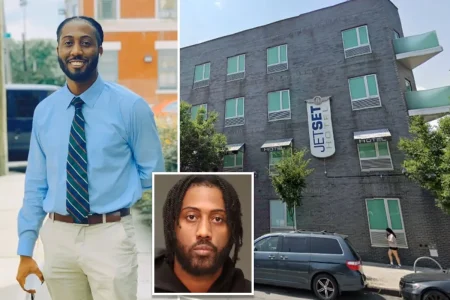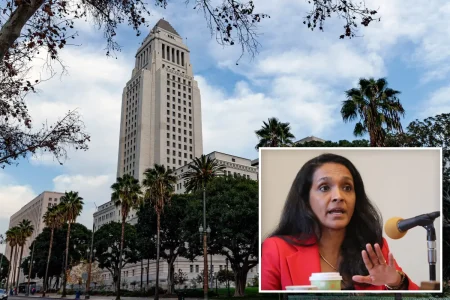Community Outrage Erupts Over Teen Sex Assault Case in Oklahoma
In a small Oklahoma community, a storm of public outrage has erupted after 18-year-old Jesse Butler received what many view as a lenient sentence for multiple sexual assault charges. More than a hundred protesters gathered outside the Payne County Courthouse on Wednesday, carrying signs and demanding justice in a case that has deeply divided the town of Stillwater. The demonstrators, representing diverse community groups including the Ponca Tribal Victim Services, expressed solidarity with survivors while calling for accountability. “Jesse Butler needs to be held accountable! Payne County Judge Susan Worthington should be disbarred,” read one organization’s social media post, capturing the sentiment of many community members who believe the justice system failed the victims.
The controversy centers on Butler’s sentencing under Oklahoma’s youthful offender law, which has allowed him to avoid incarceration despite pleading no contest to ten rape-related charges and violating a protective order. Although he received a 78-year sentence, the term was suspended, permitting Butler to remain free if he completes court-ordered rehabilitation programs and adheres to strict supervision requirements. The case has gained significant attention not only because of the nature of the crimes but also because of Butler’s connections—his father previously served as the director of football operations at Oklahoma State University in Stillwater. This connection has fueled speculation about preferential treatment, with protesters specifically highlighting this relationship on their signs during demonstrations.
The impact on victims and their families has been profound and heartbreaking. “As a mom, I never thought I’d have to watch my daughter fight this kind of battle, one where she had to prove she was the victim over and over again,” one mother told local news outlet KOCO, her voice breaking with emotion. “The justice system failed her.” Police affidavits reviewed by media outlets reveal disturbing details of the assaults, including an incident where Butler allegedly strangled one victim to the point where a doctor later warned she could have died had it continued “seconds longer.” These revelations have only intensified public frustration with what many see as an inadequate response from the justice system to crimes of such severity.
The Stillwater community now finds itself navigating the fallout, with schools implementing additional security measures in response to concerning communications received following news of Butler’s sentence. A spokesperson for Stillwater Public Schools confirmed that staff had met with police to prepare for possible protests, placing extra officers on campus “out of an abundance of caution.” The school district also clarified Butler’s status, stating he does not attend classes in person and is barred from school property and events. “We condemn sexual assault and violence in all its forms,” the district shared in a public statement. “Our thoughts, prayers and hopes for justice are with the victims in our community and everywhere.”
The legal controversy has also drawn attention from state legislators, with Representative Justin “JJ” Humphrey calling the ruling “unacceptable” and announcing plans to petition for a grand jury review. “If that don’t set you on fire, your wood’s wet,” Humphrey told reporters, expressing his dismay at the case’s outcome. The Payne County District Attorney’s Office has defended their decision to pursue the case under the youthful offender law, explaining it was based on Butler’s age at the time of the crimes. According to their statement, the law allows supervision “until the defendant’s 19th birthday” and provides an opportunity for rehabilitation “while still holding him accountable”—a rationale that has done little to quell community outrage.
While Butler remains free, court documents reveal he is under extensive supervision by the Office of Juvenile Affairs. His restrictions include mandatory therapy and counseling sessions, completion of more than 100 hours of community service, daily check-ins, weekly supervision meetings, a social media ban, and strict curfew requirements. The court has made clear that any violation of these terms could result in the enforcement of his full 78-year sentence. As the community continues to process its collective anger and disappointment, all eyes will be on Butler’s next hearing, scheduled for December 8 in Payne County District Court. For a town shaken by both the original crimes and what many perceive as a miscarriage of justice, the healing process has only just begun, with victims and their supporters vowing to continue their fight for accountability and change within the legal system.










